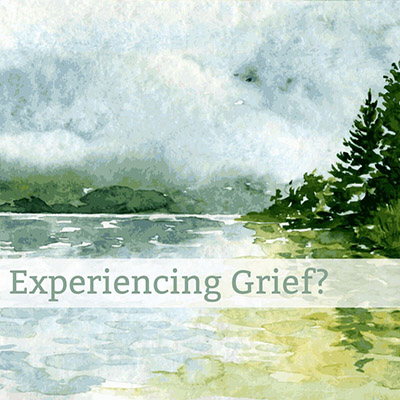English
en Español
Coping With the Death of a Parent
We're never really ready to say goodbye to people who play such an important role in our lives.
Highland Memory Gardens in Apopka, FL

Losing a parent is an incredibly difficult experience, one that evokes a mix of emotions including pain, fear, and deep sadness. Grief, the natural and necessary process of saying goodbye, becomes the pathway to untangling the emotional bonds formed with our departed loved ones.
The grieving process varies from person to person, influenced by factors such as our relationship with our parent, age, previous encounters with death, and religious beliefs. Whether their passing was sudden or the culmination of a long illness, each individual's grief journey is unique, and no one can predict how it will unfold.
There are common reactions to the death of a loved one that we may experience. Initially, shock may set in, leading us to deny the reality of their passing. It's not uncommon to say, "No, they made a mistake. My parent is okay." This initial shock can gradually give way to numbness, creating a sense of detachment from the situation as if it were unfolding in a movie. Remember, these reactions are natural and serve as a buffer, allowing us to gradually come to terms with the truth.
During the grieving process, emotions such as anger and guilt may arise. We may find ourselves directing anger towards healthcare professionals, the funeral director, or even at God. If we believe that our parent's death was preventable, we might experience anger towards them and subsequently feel guilty for harboring such emotions. Guilt may also manifest due to unresolved arguments or unfulfilled wishes, even for seemingly trivial things like missing a dinner invitation. It's important to recognize that these feelings are a normal part of the grieving process.
The mental and emotional impact of grief can take a toll on our physical well-being. Weight loss, sleep disturbances, irritability, listlessness, and even hair loss are not uncommon during this time. Additionally, as the initial shock subsides, we may experience secondary losses. These losses extend beyond the death of our parent and encompass the role they played in our lives as advisors, role models, and friends. The family home, once a gathering place for reunions, may now feel emptier. These secondary losses can intensify feelings of loneliness and longing for our parent's presence.
If we have children of our own, another challenging task awaits: telling them about the death of their grandparent. It is important to provide age-appropriate and honest explanations, avoiding misleading euphemisms that may cause confusion or fear. Children look to us for cues on how to navigate their own grief, so allowing them to witness our own grief and including them in the mourning process can be beneficial for their own healing.
Overcoming the challenges of parental loss requires recognizing that grief is a necessary process with no shortcuts. Ventilating our feelings, whether through tears or open conversations with family and friends, is vital. It's important to reach out for support and let others know what we need during this time. Creating space for quiet reflection, lightening our schedules, and discussing memories with our surviving parent can aid in our healing journey.
If we find ourselves struggling to handle our grief, seeking professional help can be beneficial. There is no set timetable for grief, and it can be difficult to discern when professional support is needed. If concerns arise, reaching out to a counselor recommended by a funeral director, clergyperson, or doctor can provide guidance and reassurance that our reactions are normal.
Remember, the path to healing is unique for each individual. By embracing the grieving process, seeking support, and allowing ourselves to navigate the complexities of our emotions, we can gradually find solace and begin to rebuild our lives while cherishing the memories of our beloved parents.



